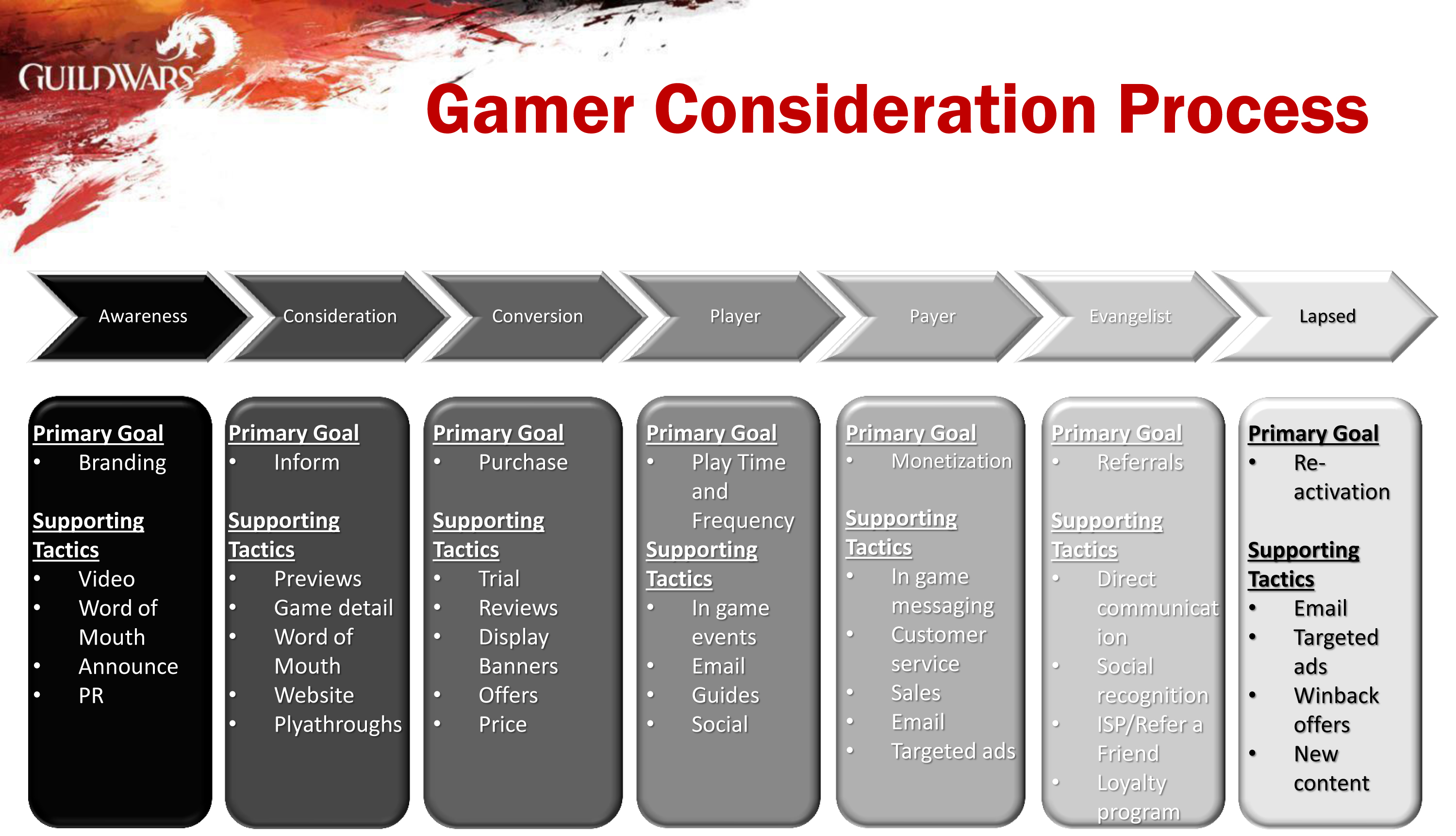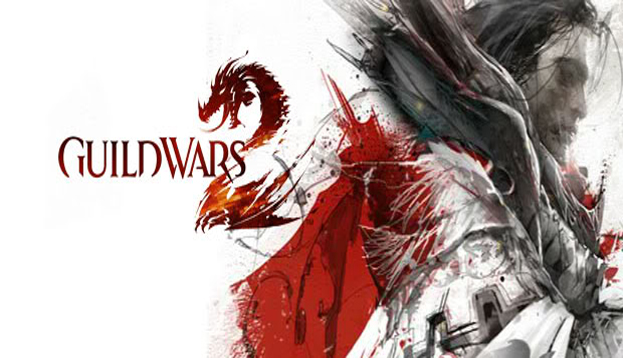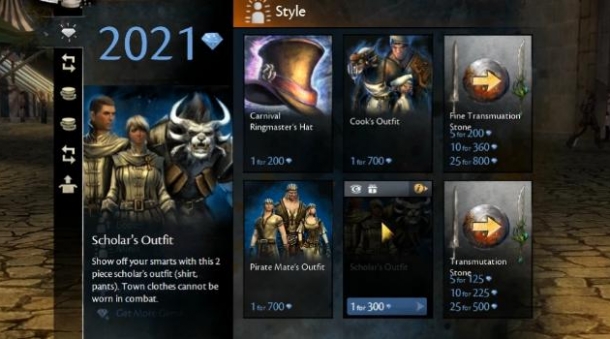Avis set a marketing standard 50 years ago for any product that finds itself with the distinction of being second best. For the better part of these past 50 years, the company stuck to a single slogan, “We try harder,” as their answer to being the second largest car rental brand behind Hertz. Avis saw a turnaround in its business and became a profitable company in the years immediately following its new campaign, and even though it never caught Hertz it became a much closer competitor. It wasn’t a slogan that changed its fortunes. It was the perception it set for Avis and the service it provides.
Marketing strategy for a car rental brand seems like a world away from marketing games. That is unless you factor in how more and more marketers working on MMO, free-to-play and other persistent games are looking to how traditional service-oriented brands have succeeded. Therefore it wasn’t the least bit surprising to hear Avis’ philosophy come through when talking to Steve Fowler about Guild Wars 2. Readers of [a]list daily might recognize Fowler as the author of the “Publisher 2.0″ series of articles looking at the changing face of marketing, where he argued how many digital games resemble a service {link no longer active} rather than a traditional product. Fowler now heads up global marketing on Guild Wars 2 for ArenaNet.
“We understand that Guild Wars is not the current category leader but as number two, I think we remain humble and extremely persistent. We are striving towards building the most entertaining and fun virtual online word ever,” Fowler told us in our recent interview. He later added, “We believe that selling games as a service is significantly different than selling games as products. Our marketing team is more akin to how the marketers at HBO or Netflix operate than the way marketers of games like Halo or Call of Duty work.”
As it vies for number one, Guild Wars 2 is facing that behemoth World of Warcraft, a game so massively successful that even two years of steady subscriber churn hasn’t toppled it. It’s a matter of time for the nearly nine year-old game. In the meantime, by all accounts ArenaNet is trying harder, and it’s paying off. The company recently announced that research from analyst firm DFC Intelligence shows that Guild Wars 2 is now the fastest selling MMO RPG in North America and Europe. It’ll soon be nipping even closer at World of Warcraft’s heels as it pivots to China for growth, a market Blizzard entered more than four years ago. Earlier this month ArenaNet revealed that it had struck up a relationship with KongZhong Corporation, a major digital services provider in China, to enter the market there.
The fastest-selling MMO announcement was the second time ArenaNet was able to trumpet Guild Wars 2 sales. In January of this year, the company boasted that the game had sold 3 million units in the first four months after launch. It did so on the back of a launch campaign centered on billing the game as a “revolutionary” alternative to other MMOs. Heavily implied in that messaging was that Guild Wars 2 was the timely alternative to the dog-eared World of Worldcraft. ArenaNet enlisted Ayzenberg to work that messaging into an extensive campaign, much of it built on a complex acquisition model to drive digital conversion, while managing campaign dynamics in real-time with ArenaNet to balance performance. A memorable part of the effort from a consumer perspective was deploying the slogan “Our Time is Now” on a global scale at launch, with creative that showed game characters rising in battle juxtaposed against the mobilizing catchline.
ArenaNet even adopted the “revolutionary” message into its communications about how it was developing the game. Shortly after launch, the game’s brand director Chris Lye described how while ArenaNet wanted provocative messaging aiming at “that combination of provoke, cause some debate,” the notion of being revolutionary went beyond a marketing line.
“The whole revolutionary notion, a lot of people have tried to say ‘yes our studio is revolutionary, or our game is revolutionary,’ we’ve demonstrated it time and time again when it matters,” Lye said at the time.
As Guild Wars 2 enters its second year, ArenaNet is treating the next phase of messaging and marketing very differently. It’s going to be about striking a balance between paid and earned media, according to Fowler. It’s also about targeting potential players based less on who they are and more on where they’re at in what ArenaNet labels the “consideration process.”
Fowler explained, “When we consider communication to gamers we think less about demographics or psychographics and more about the different phases of consideration our target audience might be in. As an example we define seven stages of consideration that we build marketing communications against. It is our goal that there be constant messaging against all seven segments at all times, with ramp-up or slowdown of pace against each, based on short term goals.”
“In addition, each of these different phases have unique attributes that determine where, when and how we place those messages. For instance, if a consumer is aware of us, has done their evaluation of our game, and is considering us for purchase, we have better success with conversion in paid media than with owned or earned efforts. Conversely, if the gamer has not yet made up his mind that they are ready to convert, we lean on owned and earned media efforts more than paid.”

At the same time, ArenaNet is of course continuing to rely on its player base to drive word of mouth and recruit new players by sharing their experience. Fowler said in the next few months, players will start seeing both loyalty programs that help keep them playing as well as incentives for referrals to get them to go out and recruit.
One thing helping keep players on board and online in Guild Wars 2 is how ArenaNet picked its own path to how it would profit from the game. Despite launching into the eye of the free-to-play storm last year, neither the developer nor publisher NC SOFT succumbed to the trend. They priced the game like a premium packaged title but once someone purchased it, it essentially behaved like a free-to-play game. There are no monthly subscriptions to play, and players haven’t paid a penny for the consistent stream of new content ArenaNet has been putting out. But there is an in-game cash shop where they can spend real money. The model seemed risky, considering ArenaNet’s plan has been to sustain this game for years to come. Fowler explained why it’s succeeding and was the right choice for the game.
“It is an extremely risky proposition to give a game that costs hundreds of millions of dollars [to develop] away for free,” he said. “The business model choices a studio makes need to be supported by the game itself. For example, forcing a micro-transaction model on a game that was built around subscription is extremely challenging. I think we are fortunate to have a business model that supports the way Guild Wars 2 was designed. In order for us to have success with a ‘buy-to-play’ product we need to deliver an extremely high quality game. In addition, for us to sustain a service we need to be able to continue to generate revenue post sale without making our fans feel like they need to pay to play.”
All told, ArenaNet didn’t find success on marketing wizardry and business model alone. Sure, persistent games can mimic service-based products when it comes to some of the marketing fundamentals, where perception of the brand or how satisfied its customers are influence purchases. But the purchase decision with games starts and ends with the product. This is where Guild Wars 2 has delivered where others who’ve taken on the challenge of unseating World of Warcraft have fallen short.
“It is all about product quality,” Fowler told us. “Guild Wars 2 has an average Metacritic score of 90 percent. This is truly amazing considering the scope of this game. But what is truly the icing on the cake is that we deliver all of this without a subscription. Simply, the value of Guild Wars 2 cannot be matched. It takes all of this together to reach the type of sales milestones we have hit.
Today is a year to the day from when Guild Wars 2 launched. For ArenaNet, the war to win enough hearts and minds to become the number one MMO on the market seems to have just begun. To mark the anniversary, ArenaNet president and co-founder Mike O’Brien has written a blog aimed at both his own studio and the player community at large.
“You may have heard it said that ‘building a successful MMO isn’t a sprint, it’s a marathon,'” Mike writes. “I think that’s true — you have to adopt the long view — but sometimes the challenges after launch are so varied that it really feels more like a triathlon.”



